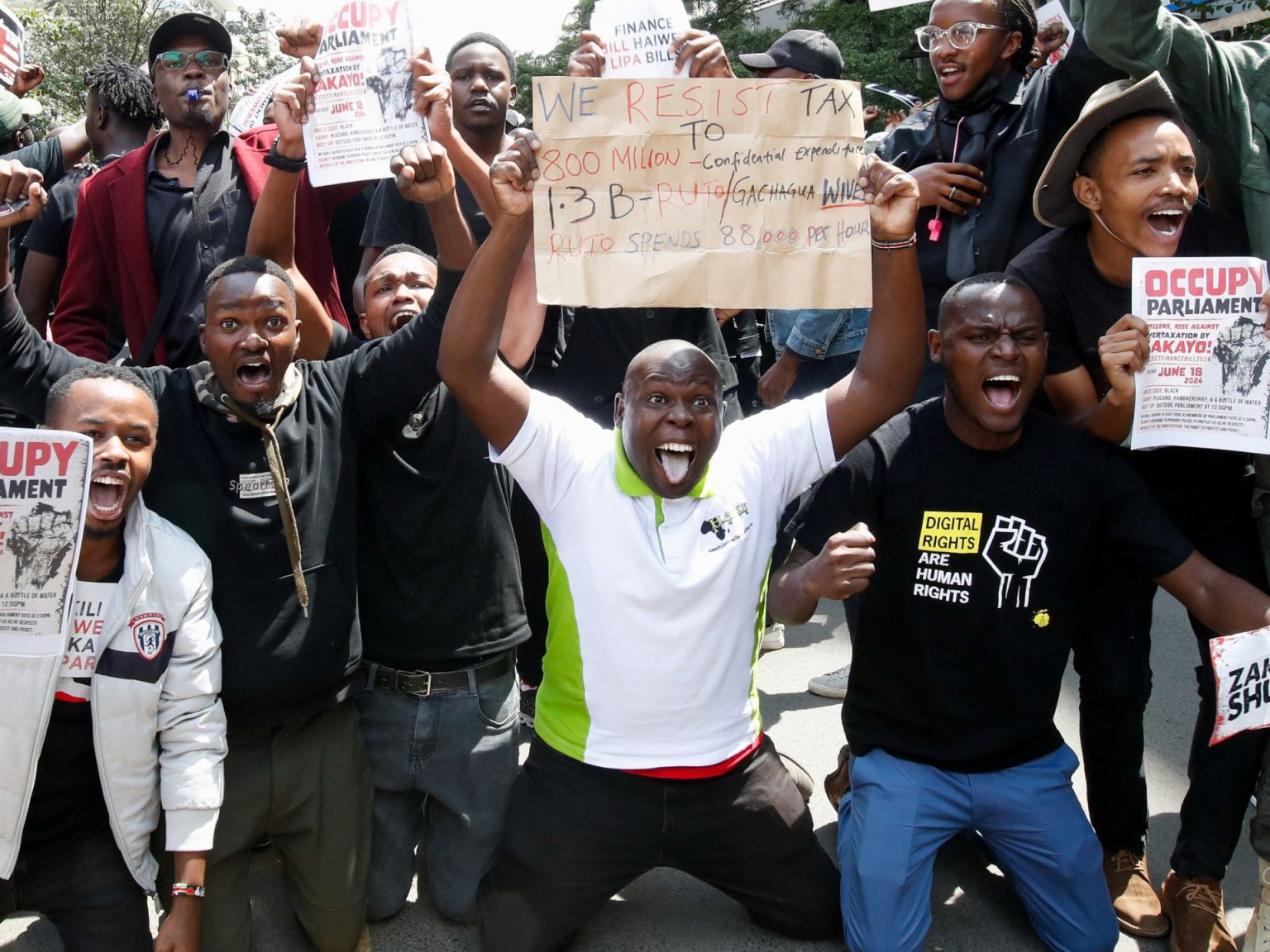The proposed tax increases in Kenya, which included a 16 percent value-added tax on bread, led to widespread protests and confrontations in the capital. The government faced backlash from the public over these measures, prompting them to drop many of the most controversial proposals. While the tax increases were intended to generate revenue for the government, they were met with resistance from citizens who believed they would disproportionately impact the poor and working class.
The protests and confrontations in Nairobi highlighted the deep-seated frustrations and economic disparities that exist in Kenya. Many citizens felt that the proposed tax increases would only exacerbate these inequalities and make it even more difficult for them to make ends meet. The government’s decision to backtrack on some of the more controversial proposals was seen as a concession to the protesters, but concerns remained about the overall impact of the tax increases on the country’s economy and society.
The proposed value-added tax on bread in particular drew widespread criticism, as bread is a staple food for many Kenyan families. The tax would have increased the cost of bread, making it less affordable for those already struggling to feed themselves and their families. The outcry over this specific proposal underscored the importance of considering the impact of tax policies on the most vulnerable members of society.
The protests in Nairobi also highlighted the power of collective action and public mobilization in shaping government policies. Citizens took to the streets to voice their opposition to the tax increases, forcing the government to rethink its approach. The demonstrations served as a reminder that public opinion and activism can play a crucial role in holding governments accountable and shaping decision-making processes.
Moving forward, there is a need for a more inclusive and transparent approach to tax policy-making in Kenya. The government must engage with citizens, civil society organizations, and other stakeholders to ensure that tax policies are fair and equitable. It is clear that the public will not hesitate to push back against measures that they perceive as unjust or harmful to their well-being, underscoring the importance of open and participatory governance practices.
In conclusion, the protests and confrontations in Nairobi over proposed tax increases in Kenya reflect broader social and economic challenges facing the country. The government’s decision to drop some of the most controversial proposals is a step in the right direction, but more needs to be done to address the underlying issues of inequality and poverty. By engaging with citizens and stakeholders in a more inclusive manner, the government can work towards developing tax policies that promote economic growth and social welfare for all Kenyans.













